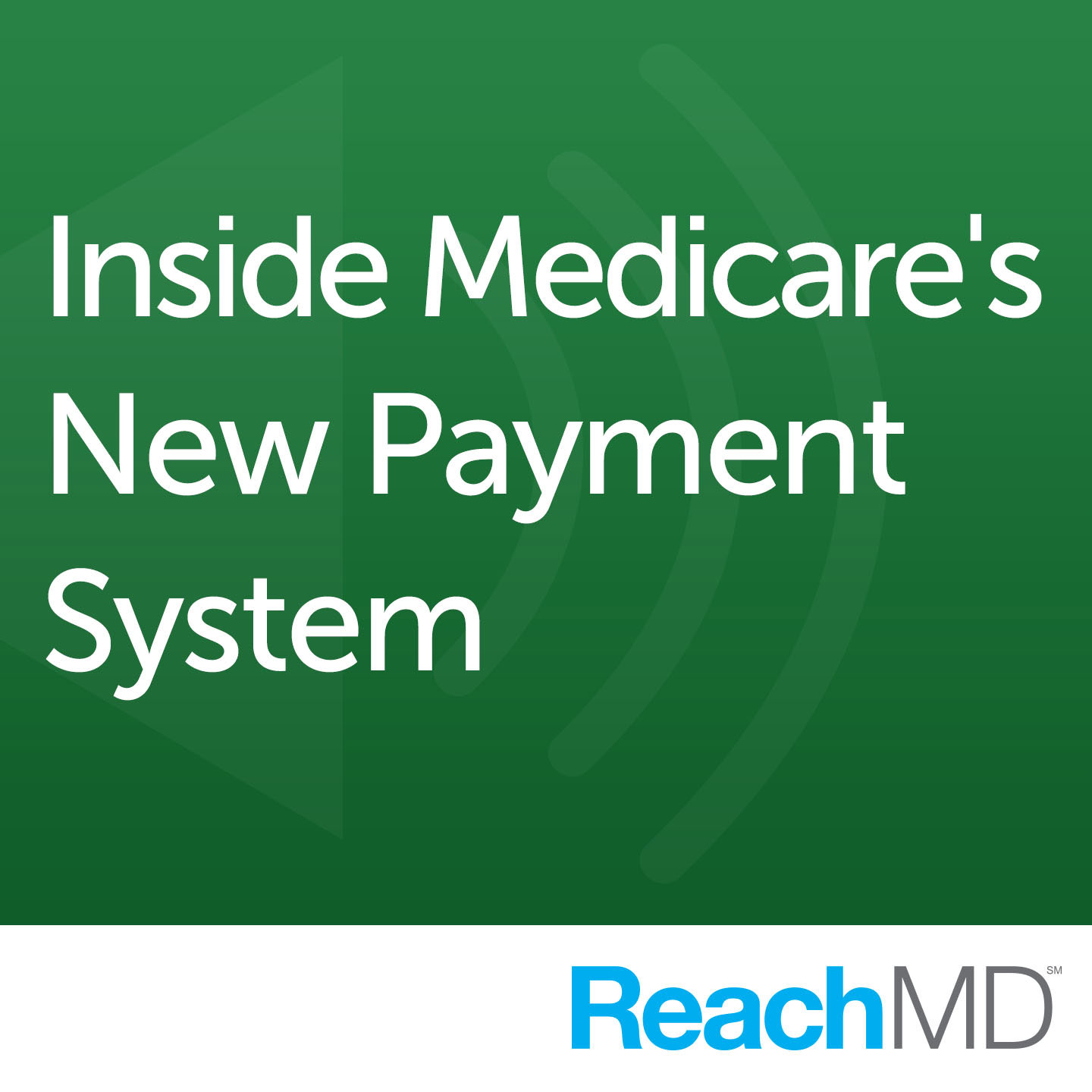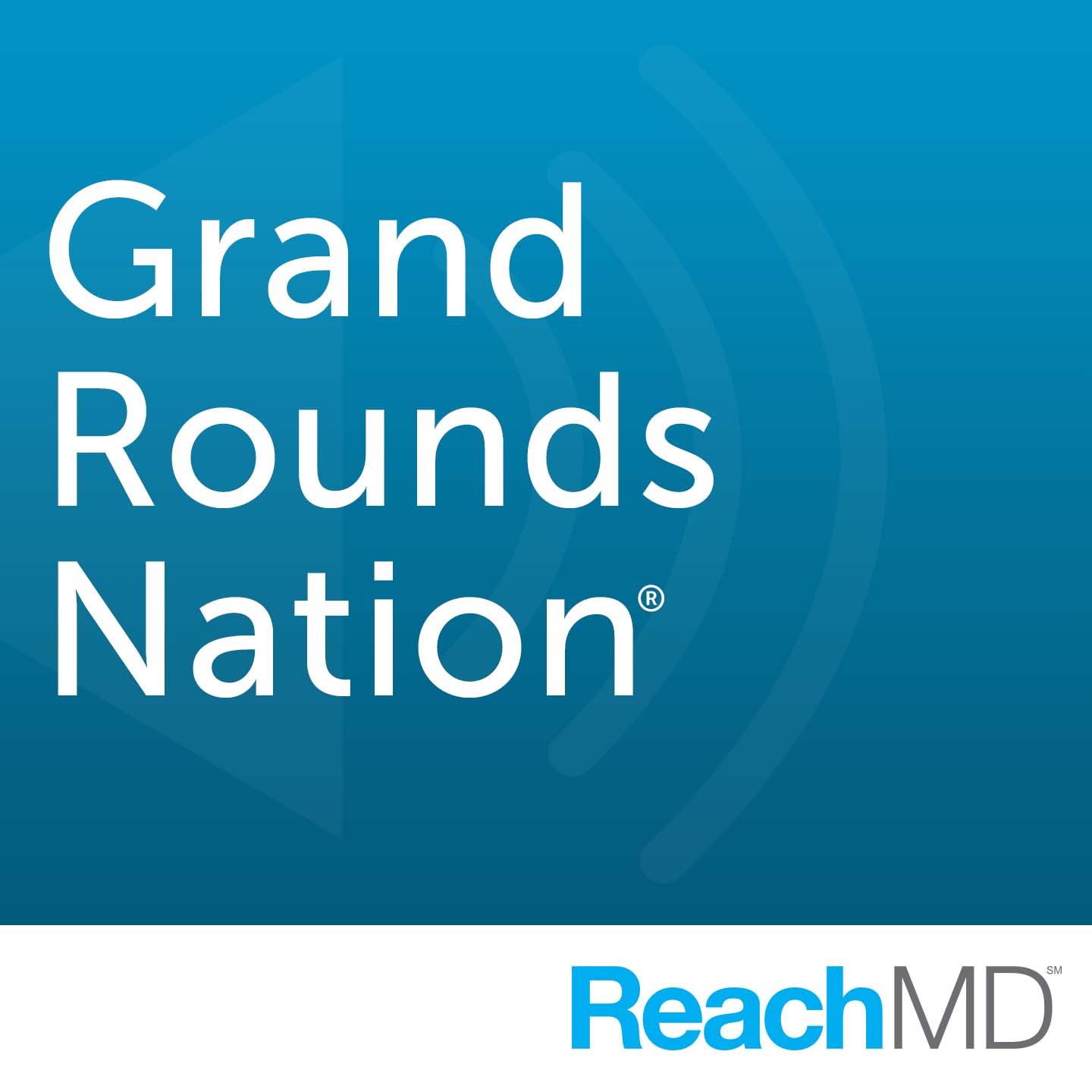Shows
 At The Same TimeYou Have To Put One Foot In Front of the OtherIn part 2 of this 2-part episode, we continue our conversation with Rabbi Joel Simon, Rabbi Michael Weiss, Rabbi Richard Birnholz, and Cantor Deborah Cannizzaro. We talk about how to make sense of what we are all going through with the pandemic, how to show ourselves and others empathy, and the importance of never giving up.
Congregation Schaarai Zedek: https://www.zedek.org/
Music: https://www.purple-planet.comSpecial Guests: Cantor Deborrah Cannizzaro, Rabbi Emeritus Richard Birnholz, Rabbi Joel Simon, and Rabbi Michael Weiss.2020-09-2935 min
At The Same TimeYou Have To Put One Foot In Front of the OtherIn part 2 of this 2-part episode, we continue our conversation with Rabbi Joel Simon, Rabbi Michael Weiss, Rabbi Richard Birnholz, and Cantor Deborah Cannizzaro. We talk about how to make sense of what we are all going through with the pandemic, how to show ourselves and others empathy, and the importance of never giving up.
Congregation Schaarai Zedek: https://www.zedek.org/
Music: https://www.purple-planet.comSpecial Guests: Cantor Deborrah Cannizzaro, Rabbi Emeritus Richard Birnholz, Rabbi Joel Simon, and Rabbi Michael Weiss.2020-09-2935 min At The Same TimeSometimes Not Having Answers is More Important Than Having ThemIn part 1 of this 2-part episode, we speak with Rabbi Joel Simon, Rabbi Michael Weiss, Cantor Deborah Cannizzaro, and Rabbi Richard Birnholz. We learn more about each of them and how God, spirituality, and connectedness pervade all parts of life - even during a challenging time like a pandemic.
Congregation Schaarai Zedek: https://www.zedek.org/
Music: https://www.purple-planet.comSpecial Guests: Cantor Deborrah Cannizzaro, Rabbi Emeritus Richard Birnholz, Rabbi Joel Simon, and Rabbi Michael Weiss.2020-09-1843 min
At The Same TimeSometimes Not Having Answers is More Important Than Having ThemIn part 1 of this 2-part episode, we speak with Rabbi Joel Simon, Rabbi Michael Weiss, Cantor Deborah Cannizzaro, and Rabbi Richard Birnholz. We learn more about each of them and how God, spirituality, and connectedness pervade all parts of life - even during a challenging time like a pandemic.
Congregation Schaarai Zedek: https://www.zedek.org/
Music: https://www.purple-planet.comSpecial Guests: Cantor Deborrah Cannizzaro, Rabbi Emeritus Richard Birnholz, Rabbi Joel Simon, and Rabbi Michael Weiss.2020-09-1843 min The Bible Project 2020Episode 33 // Jeremiah from a Jewish Perspective // Rabbi Richard BirnholzToday's episode features a conversation with Rabbi Richard Birnholz, Rabbi Emeritus at Congregation Schaarai Zedek in Tampa, FL. Rabbi Birnholz joined us back in February on Episode 7 for a discussion of Numbers and Deuteronomy.On this episode, Rabbi Birnholz, Celia Ferman, and Mat Hotho discuss the book of Jeremiah and how the lessons of Jeremiah inform ancient and modern Jewish communities. Rabbi Birnholz suggests that Jeremiah’s political shrewdness preserved the Jewish people and provided a model for modern day Jewish communities living in the Diaspora. Learn more about The Bible Project 2020. Join our...2020-07-2025 min
The Bible Project 2020Episode 33 // Jeremiah from a Jewish Perspective // Rabbi Richard BirnholzToday's episode features a conversation with Rabbi Richard Birnholz, Rabbi Emeritus at Congregation Schaarai Zedek in Tampa, FL. Rabbi Birnholz joined us back in February on Episode 7 for a discussion of Numbers and Deuteronomy.On this episode, Rabbi Birnholz, Celia Ferman, and Mat Hotho discuss the book of Jeremiah and how the lessons of Jeremiah inform ancient and modern Jewish communities. Rabbi Birnholz suggests that Jeremiah’s political shrewdness preserved the Jewish people and provided a model for modern day Jewish communities living in the Diaspora. Learn more about The Bible Project 2020. Join our...2020-07-2025 min The Bible Project 2020Episode 7 // Numbers 26 – Deuteronomy 20 // Rabbi Richard BirnholzThis week, we are joined by Rabbi Richard Birnholz, Rabbi Emeritus of Tampa Schaarai Zedek in Tampa, FL. Rabbi Birnholz and Celia Ferman discuss the story of Zelophehad’s daughters in Number 27 as well as the transition from a priestly system to a...2020-02-1023 min
The Bible Project 2020Episode 7 // Numbers 26 – Deuteronomy 20 // Rabbi Richard BirnholzThis week, we are joined by Rabbi Richard Birnholz, Rabbi Emeritus of Tampa Schaarai Zedek in Tampa, FL. Rabbi Birnholz and Celia Ferman discuss the story of Zelophehad’s daughters in Number 27 as well as the transition from a priestly system to a...2020-02-1023 min The Bible Project 2020Episode 8 // Numbers 26 – Deuteronomy 20 // Rabbi Richard BirnholzThis week, we are joined by Rabbi Richard Birnholz, Rabbi Emeritus of Tampa Schaarai Zedek in Tampa, FL. Rabbi Birnholz and Celia Ferman discuss the story of Zelophehad’s daughters in Number 27 as well as the transition from a priestly system to a rabbinical system in judaism. We wrestle with two big questions: Why do bad things happen to good people and why is God portrayed as wrathful? And finally, we talk about the ways modern Jewish communities have made the Shema a constant part of their modern lives. Learn more about The Bible Project 2020. Joi...2020-02-1023 min
The Bible Project 2020Episode 8 // Numbers 26 – Deuteronomy 20 // Rabbi Richard BirnholzThis week, we are joined by Rabbi Richard Birnholz, Rabbi Emeritus of Tampa Schaarai Zedek in Tampa, FL. Rabbi Birnholz and Celia Ferman discuss the story of Zelophehad’s daughters in Number 27 as well as the transition from a priestly system to a rabbinical system in judaism. We wrestle with two big questions: Why do bad things happen to good people and why is God portrayed as wrathful? And finally, we talk about the ways modern Jewish communities have made the Shema a constant part of their modern lives. Learn more about The Bible Project 2020. Joi...2020-02-1023 min Congregation Schaarai ZedekYizkorA Yizkor sermon delivered by Rabbi Richard Birnholz at Congregation Schaarai Zedek in Tampa, Florida on September 19, 2018.
Follow us @schaaraizedek or visit our website www.zedek.org.2018-09-2123 min
Congregation Schaarai ZedekYizkorA Yizkor sermon delivered by Rabbi Richard Birnholz at Congregation Schaarai Zedek in Tampa, Florida on September 19, 2018.
Follow us @schaaraizedek or visit our website www.zedek.org.2018-09-2123 min Congregation Schaarai ZedekJune 29, 2018 Sermon - Rabbi Richard J. BirnholzRabbi Richard J. Birnholz will speak on “The Most Important Piece of Advice I Can Give After 47 Years in the Rabbinate" in his last sermon as Senior Rabbi at Congregation Schaarai Zedek.2018-07-0524 min
Congregation Schaarai ZedekJune 29, 2018 Sermon - Rabbi Richard J. BirnholzRabbi Richard J. Birnholz will speak on “The Most Important Piece of Advice I Can Give After 47 Years in the Rabbinate" in his last sermon as Senior Rabbi at Congregation Schaarai Zedek.2018-07-0524 min Inside Medicare's New Payment SystemHow Small Practices Can Comply with MIPS Quality Reporting RequirementsHost: Matt Birnholz, MD
Guest: Richard Deem
With the advent of the Medicare Quality Payment Program, there are notable practice changes for clinicians. What do these changes mean for you and your practice? To examine the issues and opportunities, host Dr. Matt Birnholz welcomes Richard Deem who is the Senior Vice President of Advocacy at AMA. Mr. Deem will explain how these changes affect small practices in particular, and what physicians in these practices need to know in order to succeed. 2018-02-0200 min
Inside Medicare's New Payment SystemHow Small Practices Can Comply with MIPS Quality Reporting RequirementsHost: Matt Birnholz, MD
Guest: Richard Deem
With the advent of the Medicare Quality Payment Program, there are notable practice changes for clinicians. What do these changes mean for you and your practice? To examine the issues and opportunities, host Dr. Matt Birnholz welcomes Richard Deem who is the Senior Vice President of Advocacy at AMA. Mr. Deem will explain how these changes affect small practices in particular, and what physicians in these practices need to know in order to succeed. 2018-02-0200 min Perspectives with the AMAHow Small Practices Can Comply with MIPS Quality Reporting Requirements
Host: Matt Birnholz, MD
Guest: Richard Deem
With the advent of the Medicare Quality Payment Program, there are notable practice changes for clinicians. What do these changes mean for you and your practice? To examine the issues and opportunities, host Dr. Matt Birnholz welcomes Richard Deem who is the Senior Vice President of Advocacy at AMA. Mr. Deem will explain how these changes affect small practices in particular, and what physicians in these practices need to know in order to succeed. 2018-02-0200 min
Perspectives with the AMAHow Small Practices Can Comply with MIPS Quality Reporting Requirements
Host: Matt Birnholz, MD
Guest: Richard Deem
With the advent of the Medicare Quality Payment Program, there are notable practice changes for clinicians. What do these changes mean for you and your practice? To examine the issues and opportunities, host Dr. Matt Birnholz welcomes Richard Deem who is the Senior Vice President of Advocacy at AMA. Mr. Deem will explain how these changes affect small practices in particular, and what physicians in these practices need to know in order to succeed. 2018-02-0200 min Grand Rounds NationAlternative Approaches to the Treatment of Depression, Part 2Host: Matt Birnholz, MD
This session of Grand Rounds Nation is provided by the American College of Osteopathic Family Physicians (ACOFP), and features Dr. Richard Cottrell speaking on both first line and alternative approaches to the treatment of depression. Comparisons of antidepressive medications, counseling therapy models, and lifestyle modifications are explored. Additionally, novel treatment strategies in current use or on the horizon such as bright light therapy, transcranial magnetic stimulation, electroconvulsive therapy, and deep brain stimulation are investigated. This is Part 2 of a lecture in two parts. Part 1 >>2012-10-2600 min
Grand Rounds NationAlternative Approaches to the Treatment of Depression, Part 2Host: Matt Birnholz, MD
This session of Grand Rounds Nation is provided by the American College of Osteopathic Family Physicians (ACOFP), and features Dr. Richard Cottrell speaking on both first line and alternative approaches to the treatment of depression. Comparisons of antidepressive medications, counseling therapy models, and lifestyle modifications are explored. Additionally, novel treatment strategies in current use or on the horizon such as bright light therapy, transcranial magnetic stimulation, electroconvulsive therapy, and deep brain stimulation are investigated. This is Part 2 of a lecture in two parts. Part 1 >>2012-10-2600 min Grand Rounds NationAlternative Approaches to the Treatment of Depression, Part 1Host: Matt Birnholz, MD
This session of Grand Rounds Nation is provided by the American College of Osteopathic Family Physicians (ACOFP), and features Dr. Richard Cottrell speaking on both first line and alternative approaches to the treatment of depression. Comparisons of antidepressive medications, counseling therapy models, and lifestyle modifications are explored. Additionally, novel treatment strategies in current use or on the horizon such as bright light therapy, transcranial magnetic stimulation, electroconvulsive therapy, and deep brain stimulation are investigated. This is Part 1 of a lecture in two parts. Part 2 >>2012-10-2600 min
Grand Rounds NationAlternative Approaches to the Treatment of Depression, Part 1Host: Matt Birnholz, MD
This session of Grand Rounds Nation is provided by the American College of Osteopathic Family Physicians (ACOFP), and features Dr. Richard Cottrell speaking on both first line and alternative approaches to the treatment of depression. Comparisons of antidepressive medications, counseling therapy models, and lifestyle modifications are explored. Additionally, novel treatment strategies in current use or on the horizon such as bright light therapy, transcranial magnetic stimulation, electroconvulsive therapy, and deep brain stimulation are investigated. This is Part 1 of a lecture in two parts. Part 2 >>2012-10-2600 min Grand Rounds NationUniversity of Arizona - Preclinical Stage Alzheimer's Disease: Characterizing and Defining the Transition Between Normal and Pathological Cognitive Aging, Part 3Host: Matt Birnholz, MD
For people who carry genetic predispositions toward Alzheimer's Disease, little is currently known about predicting the onset, course, and severity of disease at the individual level. However, because cogntitive degenerative diseases most often follow a gradual course of symptom progression later in life, medical professionals must be aware of the distinct, discoverable changes that occur at the "preclinical" stage, i.e prior to the symptomatic onset of memory loss. In this session of Grand Rounds from the University of Arizona College of Medicine, participants learn about Alzheimer's Disease from an unique perspective...2011-04-1900 min
Grand Rounds NationUniversity of Arizona - Preclinical Stage Alzheimer's Disease: Characterizing and Defining the Transition Between Normal and Pathological Cognitive Aging, Part 3Host: Matt Birnholz, MD
For people who carry genetic predispositions toward Alzheimer's Disease, little is currently known about predicting the onset, course, and severity of disease at the individual level. However, because cogntitive degenerative diseases most often follow a gradual course of symptom progression later in life, medical professionals must be aware of the distinct, discoverable changes that occur at the "preclinical" stage, i.e prior to the symptomatic onset of memory loss. In this session of Grand Rounds from the University of Arizona College of Medicine, participants learn about Alzheimer's Disease from an unique perspective...2011-04-1900 min Grand Rounds NationUniversity of Arizona - Preclinical Stage Alzheimer's Disease: Characterizing and Defining the Transition Between Normal and Pathological Cognitive Aging, Part 2Host: Matt Birnholz, MD
For people who carry genetic predispositions toward Alzheimer's Disease, little is currently known about predicting the onset, course, and severity of disease at the individual level. However, because cogntitive degenerative diseases most often follow a gradual course of symptom progression later in life, medical professionals must be aware of the distinct, discoverable changes that occur at the "preclinical" stage, i.e prior to the symptomatic onset of memory loss. In this session of Grand Rounds from the University of Arizona College of Medicine, participants learn about Alzheimer's Disease from an unique perspective...2011-04-1900 min
Grand Rounds NationUniversity of Arizona - Preclinical Stage Alzheimer's Disease: Characterizing and Defining the Transition Between Normal and Pathological Cognitive Aging, Part 2Host: Matt Birnholz, MD
For people who carry genetic predispositions toward Alzheimer's Disease, little is currently known about predicting the onset, course, and severity of disease at the individual level. However, because cogntitive degenerative diseases most often follow a gradual course of symptom progression later in life, medical professionals must be aware of the distinct, discoverable changes that occur at the "preclinical" stage, i.e prior to the symptomatic onset of memory loss. In this session of Grand Rounds from the University of Arizona College of Medicine, participants learn about Alzheimer's Disease from an unique perspective...2011-04-1900 min Grand Rounds NationUniversity of Arizona - Preclinical Stage Alzheimer's Disease: Characterizing and Defining the Transition Between Normal and Pathological Cognitive Aging, Part 1Host: Matt Birnholz, MD
For people who carry genetic predispositions toward Alzheimer's disease, little is currently known about predicting the onset, course, and severity of disease at the individual level. However, because cogntitive degenerative diseases most often follow a gradual course of symptom progression later in life, medical professionals must be aware of the distinct, discoverable changes that occur at the "preclinical" stage, i.e prior to the symptomatic onset of memory loss. In this session of Grand Rounds from the University of Arizona College of Medicine, participants learn about Alzheimer's Disease from a unique perspective...2011-04-1900 min
Grand Rounds NationUniversity of Arizona - Preclinical Stage Alzheimer's Disease: Characterizing and Defining the Transition Between Normal and Pathological Cognitive Aging, Part 1Host: Matt Birnholz, MD
For people who carry genetic predispositions toward Alzheimer's disease, little is currently known about predicting the onset, course, and severity of disease at the individual level. However, because cogntitive degenerative diseases most often follow a gradual course of symptom progression later in life, medical professionals must be aware of the distinct, discoverable changes that occur at the "preclinical" stage, i.e prior to the symptomatic onset of memory loss. In this session of Grand Rounds from the University of Arizona College of Medicine, participants learn about Alzheimer's Disease from a unique perspective...2011-04-1900 min Conference CoverageConference Coverage Highlights: Games for Health 2009
Host: Matt Birnholz, MD
The fifth annual Games for Health Conference, held in Boston June 10-12, brought together several hundred people at the intersection of game development and health. The stated goal was to explore the use of game techology in health and healthcare and to discuss recent industry advancements. Those interviewed in this program include: Ben Sawyer, co-founder of the conference; Richard Tate of HopeLab; Jerry Heneghan of Virtual Heroes; Richard Levine, developer of the video game "Microsurgeon;" Stephen Downs of the Robert Wood Johnson Foundation; Paul Puopolo of Humana; and Steve Brown of 3banana.2009-06-1700 min
Conference CoverageConference Coverage Highlights: Games for Health 2009
Host: Matt Birnholz, MD
The fifth annual Games for Health Conference, held in Boston June 10-12, brought together several hundred people at the intersection of game development and health. The stated goal was to explore the use of game techology in health and healthcare and to discuss recent industry advancements. Those interviewed in this program include: Ben Sawyer, co-founder of the conference; Richard Tate of HopeLab; Jerry Heneghan of Virtual Heroes; Richard Levine, developer of the video game "Microsurgeon;" Stephen Downs of the Robert Wood Johnson Foundation; Paul Puopolo of Humana; and Steve Brown of 3banana.2009-06-1700 min Conference CoverageConference Coverage Highlights: Games for Health 2009
Host: Matt Birnholz, MD
The fifth annual Games for Health Conference, held in Boston June 10-12, brought together several hundred people at the intersection of game development and health. The stated goal was to explore the use of game techology in health and healthcare and to discuss recent industry advancements. Those interviewed in this program include: Ben Sawyer, co-founder of the conference; Richard Tate of HopeLab; Jerry Heneghan of Virtual Heroes; Richard Levine, developer of the video game "Microsurgeon;" Stephen Downs of the Robert Wood Johnson Foundation; Paul Puopolo of Humana; and Steve Brown of 3banana.2009-06-1700 min
Conference CoverageConference Coverage Highlights: Games for Health 2009
Host: Matt Birnholz, MD
The fifth annual Games for Health Conference, held in Boston June 10-12, brought together several hundred people at the intersection of game development and health. The stated goal was to explore the use of game techology in health and healthcare and to discuss recent industry advancements. Those interviewed in this program include: Ben Sawyer, co-founder of the conference; Richard Tate of HopeLab; Jerry Heneghan of Virtual Heroes; Richard Levine, developer of the video game "Microsurgeon;" Stephen Downs of the Robert Wood Johnson Foundation; Paul Puopolo of Humana; and Steve Brown of 3banana.2009-06-1700 min